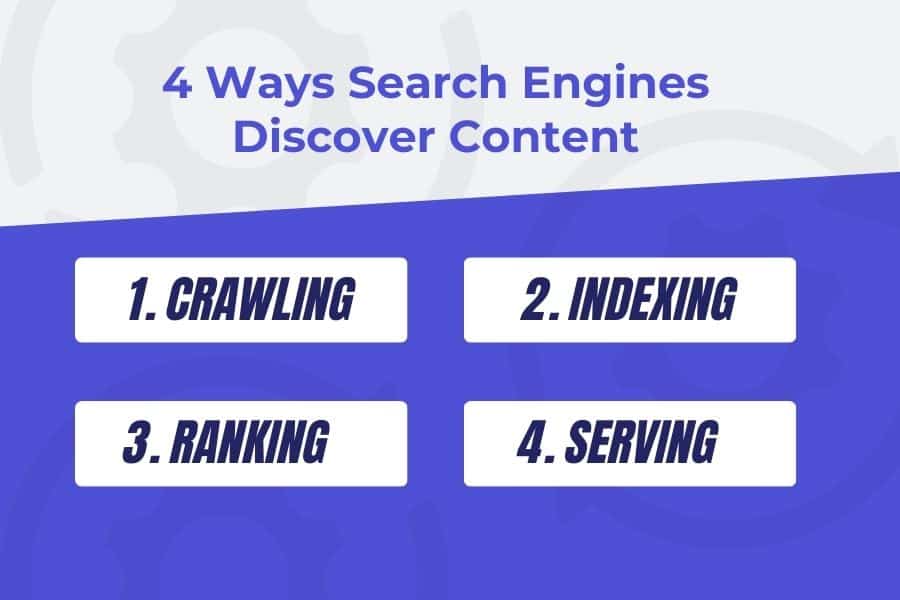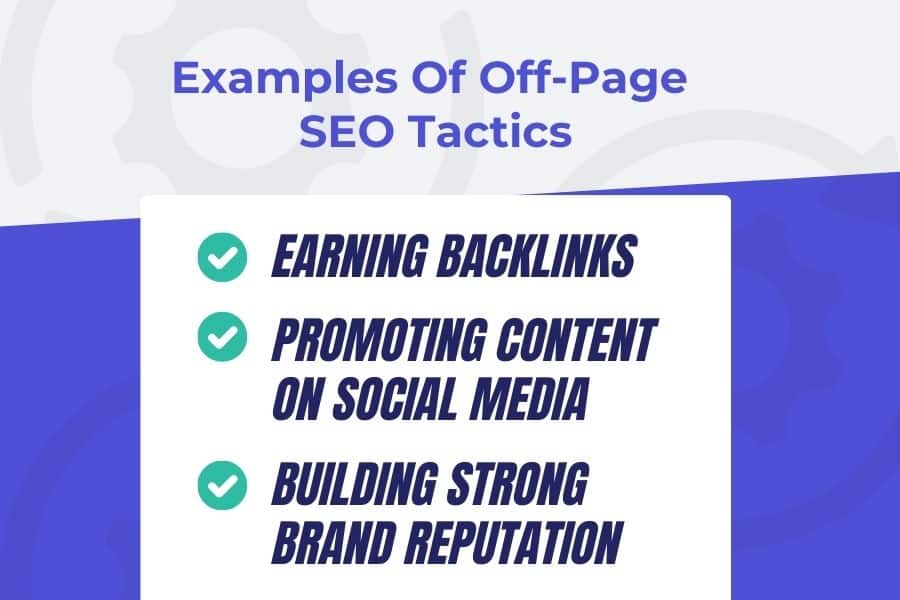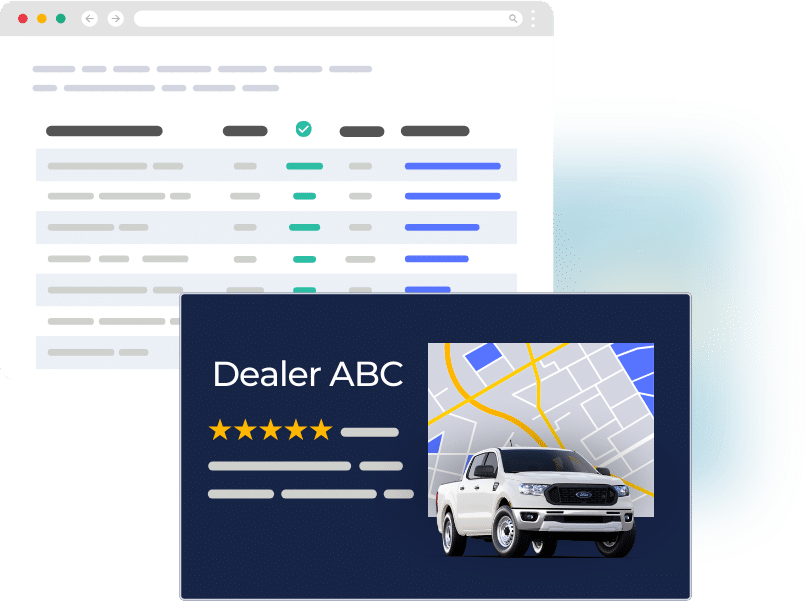Mastering the Art of Optimization of Search Engines: Strategies and Tips

Ever wondered how some websites always seem to rank at the top of search results, effortlessly attracting organic traffic and boosting their online visibility? The secret lies in mastering the art of optimization of search engines (SEO). SEO is not just a buzzword; it’s a powerful strategy that can elevate your website’s performance in search engine rankings, driving success in the digital landscape. And Dealers United has a team of experts trained on SEO…
That’s why we’re writing this! In this comprehensive guide, we will decode the essentials of optimization of search engines, explore the mechanics behind search engines, and delve into crafting a winning strategy through keyword research, content creation, and link building. We’ll also discuss technical and on-page SEO, off-page strategies, utilizing various SEO tools, navigating Google’s algorithm updates, and the synergy between SEO and other digital marketing channels. Let’s dive in!
Key Takeaways
- Master the essentials of SEO to optimize website visibility, leads & sales
- Keyword research, content creation and link building are key elements for success
- Utilize advanced techniques like schema markup & voice search optimization to stay ahead
Decoding SEO: The Essentials of Search Engine Optimization
Search engine optimization (SEO) is all about understanding how search engines work and optimizing your website accordingly to rank higher in search engine results, driving organic traffic, and increasing online visibility. To put it simply, SEO search engine optimization is like a feedback loop that helps Google deliver the most reliable, trustworthy, and relevant results for whatever you search for.
The ultimate goal of SEO is to attract website visitors who will convert to customers, clients, or loyal audience members. In this pursuit, SEO and search engine marketing (SEM) work together to improve your online presence and visibility. SEO can significantly boost your brand’s recognition, making you more visible online, and ultimately leading to more leads, sales, and even faithful customers by improving your ranking on search engine results pages (SERPs).
So, how does SEO work? It all starts with understanding the mechanics behind search engines.
The Mechanics Behind Search Engines
Search engines like Google and other search engines follow four main steps to search engine content discovery…
1. Crawling: They use crawlers to collect information about everything they can find online, including web pages, images, and other types of content.
2. Indexing: The collected information is then organized and stored in an index, which allows the search engine to quickly retrieve relevant results for a given query.
3. Ranking: When you type or say something into the search box, the search engine uses complex algorithms to determine the relevance and quality of each indexed page, and ranks them accordingly.
4. Serving: Finally, the search engine serves the most relevant and useful results from its index in response to your query, displayed on the search engine results page.
- Crawling: They use crawlers to collect information about everything they can find online, including web pages, images, and other types of content.
- Indexing: The collected information is then organized and stored in an index, which allows the search engine to quickly retrieve relevant results for a given query.
- Ranking: When you type or say something into the search box, the search engine uses complex algorithms to determine the relevance and quality of each indexed page, and ranks them accordingly.
- Serving: Finally, the search engine serves the most relevant and useful results from its index in response to your query, displayed on the search engine results page.
SEO plays a significant role in the process of choosing the top organic search results. Some key factors to consider include:
- Using semantic HTML markup for images to help crawlers locate and understand them
- Utilizing anchor text (the clickable text in a hyperlink) to help users and search engines comprehend what the linked pages are about
- Ensuring the quality of a site, as measured by Google’s E-A-T factors (Experience, Expertise, Authoritativeness, and Trustworthiness), to improve search rankings.
Understanding how search engines work and aligning your website’s content and structure with their requirements is the key to SEO success. This understanding lays the foundation for crafting a winning SEO strategy that will propel your website to the top of search results.
Crafting a Winning SEO Strategy
An effective SEO strategy begins with keyword research, which helps you target the right audience and improve search rankings. Apart from keywords, high-quality content and link building tactics are key components of a successful SEO plan. Creating a solid foundation for your website’s SEO success rests upon mastering these essential elements.
Dealers United takes the guesswork out of crafting an SEO strategy. Our team of experts specializes in implementing customized SEO solutions for car dealerships.
We will now delve into the building blocks of a winning SEO strategy, which include: keyword mastery, content creation, and link building tactics.
Keyword Mastery
Reaching your desired audience and improving your position in search results hinge on mastering keyword research. Several tools can help you find the best keywords for your organic content, such as:
By understanding your target audience’s search queries and strategically incorporating relevant keyword phrases into your content, you can ensure that your website ranks higher in search engine results and attracts more organic traffic.
Remember, the goal of keyword mastery is not only to improve your search rankings but also to connect with the right audience who will find value in your content and ultimately convert to loyal customers or clients.
Content is Still King
Attracting and retaining users, as well as improving search rankings, require creating valuable, engaging, and unique content. Some key factors to consider for creating successful content are:
- Making sure your content is fresh and unique to keep existing visitors interested and draw in new ones
- Boosting your website’s performance in search results by providing valuable and relevant content
- Ensuring that your content is interesting and useful to your target audience
By following these guidelines, you can increase the success of your website and attract more users.
Optimizing images also plays a crucial role in SEO. Using relevant images with appropriate filenames, alt text, and semantic HTML markup can enhance user experience, improve search rankings, and increase the chances of your images appearing in Google Images results.
In essence, content is still king in the world of SEO, and prioritizing high-quality content creation will undoubtedly set your website apart from the competition.
Link Building Tactics
Increasing your website’s credibility and search engine rankings necessitate building high-quality backlinks from authoritative sources. Links can be internal (pointing to other pages within the same website) or external (pointing to pages on other websites).
Both internal and external links play a vital role in enhancing your website’s SEO performance and should be incorporated strategically within your content. By effectively utilizing internal links, you can further improve your site’s search engine rankings and user experience.
There are numerous link-building strategies to explore, such as:
- Copying your competitors’ backlinks
- Using the broken link-building strategy
- Reclaiming lost backlinks
- Conducting targeted outreach
- Finding broken links and suggesting better ones
- Creating link-worthy content
- Doing something newsworthy
- Becoming an industry leader
By employing these tactics and using descriptive anchor text, you can maximize the potential of your backlinks and boost your website’s visibility in search engine results.
Let our team handle link building the right way – we know how to build high quality backlinks tailored specifically to car dealerships.
Technical SEO: Ensuring Your Site Meets Search Standards
Technical SEO focuses on optimizing website elements such as site speed, mobile-friendliness, and crawlability to meet search engine standards. This aspect of SEO ensures that search engines can discover, understand, and rank your content effectively.
For instance, search engines can locate and comprehend images more efficiently when filenames and alt text are optimized. Additionally, adhering to technical SEO best practices can improve your website’s overall user experience, which in turn can contribute to better search rankings and increased organic traffic.
On-Page SEO: Tweaking Your Website’s Content
On-page SEO involves optimizing various elements of your website’s content, such as meta tags, headings, and images, to improve search rankings and provide a better user experience. For example, optimizing meta descriptions is crucial for SEO, as Google uses them to determine what the page is about when crawling.
The title element and heading tags also play a significant role in SEO, as they provide both users and search engines with an idea of what the page is about and help organize content for easier navigation. Images, on the other hand, are essential for keeping users engaged and interested, while also offering the opportunity to rank and drive traffic from image search results.
Focusing on on-page SEO and making necessary tweaks to your website’s content not only ensures that your site is search engine-friendly, but also offers a satisfying and informative experience for your visitors.
Off-Page SEO: Increasing Authority Beyond Your Site
Off-page SEO encompasses tactics that go beyond your website, such as earning backlinks, promoting content on social media, and building a strong brand reputation.
Backlinks are essential for SEO because they’re the third most important Google ranking factor, helping to boost your website’s credibility and search engine rankings.
Social media promotion can benefit your SEO efforts in several ways:
- It can drive referral traffic to your website, increasing your overall visibility and reach.
- It can increase the chances of earning backlinks from other websites, which can improve your search engine rankings.
- It can help you build a solid brand reputation, as Google considers factors like reviews, ratings, listings, awards, and unlinked brand mentions when determining the ranking of a particular page on your site.
Incorporation of off-page SEO tactics into your overall strategy significantly enhances your online visibility, leading to higher search rankings and greater success in the digital landscape.
Utilizing SEO Tools for Maximum Efficiency
Various SEO tools maximize the efficiency of your SEO efforts and aid in making data-driven decisions to improve your website’s performance in search engine results. Some essential SEO tools include:
- Moz Keyword Explorer
- Google Keyword Planner
- Ahrefs Keywords Explorer
- Semrush
- Serpstat
- KeywordTool.io
- Ubersuggest
These tools can help you with keyword research, analytics, and backlink analysis.
Other popular SEO tools, like Google Analytics and Google Search Console, can provide valuable insights into your website’s performance and help you identify areas for improvement. By incorporating these tools into your overall SEO strategy, you can ensure that your actions are based on reliable data and that you are continuously optimizing your website to meet the ever-evolving needs of your target audience and search engine requirements.
Navigating Google’s Algorithm Updates
Maintaining and improving your search rankings necessitate staying up-to-date with Google’s algorithm updates. These updates are designed to enhance the value, relevance, quality, authoritativeness, and user experience of search results, and they can significantly impact your website’s ranking.
To navigate Google’s algorithm updates effectively, it’s crucial to:
- Gather and analyze data before the update
- Monitor changes afterward
- Adjust your SEO strategies accordingly
- Focus on user experience and content quality
By keeping a close eye on these updates and adapting your SEO approach as needed, you can ensure that your website remains competitive in the ever-changing landscape of search engine rankings.
The Synergy of SEO and Other Digital Marketing Channels
Creating a synergistic effect that boosts your overall online visibility can be achieved by combining SEO with other digital marketing channels, such as pay-per-click (PPC) advertising, content marketing, and social media marketing. For example, integrating SEO and PPC can increase brand visibility, share keyword data for more effective strategies, amplify brand awareness, improve visibility and drive traffic, and deliver better business results.
SEO also connects with other areas of marketing, such as content marketing and social media marketing. By leveraging the power of these channels in conjunction with SEO, you can create a comprehensive digital marketing strategy that drives growth, increases brand recognition, and delivers tangible results for your business.
Advanced SEO Techniques for Seasoned Practitioners
Employing advanced SEO techniques, such as schema markup, voice search optimization, and international SEO, can help seasoned practitioners stay ahead of the competition. Schema markup can help search engines better understand your website content, potentially leading to improved search rankings and the appearance of rich snippets in search results.
Voice search optimization is another advanced technique that can capitalize on the growing trend of voice-activated searches, ensuring your website caters to users who prefer this method of searching. International SEO, on the other hand, involves optimizing your website for different regions, languages, and cultures to expand your global reach and appeal to a broader audience.
By mastering these advanced SEO techniques, you can continue to refine your website’s performance and stay one step ahead of your competitors in the ever-evolving world of digital marketing.
Summary
In conclusion, mastering the art of search engine optimization is an ongoing process that involves understanding the mechanics behind search engines, crafting a winning SEO strategy, and utilizing various SEO tools for maximum efficiency.
By combining on-page, off-page, and technical SEO tactics, and embracing the synergy between SEO and other digital marketing channels, you can elevate your website’s performance in search engine rankings, drive organic traffic, and boost your online visibility.
The journey to SEO success may be challenging, but with persistence, adaptability, and a solid understanding of the principles outlined in this guide…OR with Dealers United’s SEO Solutions, you can achieve remarkable results and establish a strong presence in the digital landscape.
Frequently Asked Questions
What are search engine optimization strategies?
Search Engine Optimization (SEO) is the process of optimizing a website in order to rank higher in search engine results. This includes arranging content by topic, improving the website’s appearance, and creating useful content that can be found in organic search results.
What is an example of search engine optimization?
Search engine optimization (SEO) is the practice of optimizing web pages to rank higher in search engine results. Examples of SEO include adding structured data to websites, increasing page loading speeds, improving mobile-friendliness, and optimizing content for targeted keywords.
What are the three types of search engine optimization techniques?
Search Engine Optimization (SEO) can be divided into three main categories: technical SEO, content optimization, and link building. Each one works to boost your visibility and improve your ranking in organic search results.
What are the main components of a winning SEO strategy?
A winning SEO strategy should include keyword research, content creation of the highest quality, and link-building that is effective.
How do search engines like Google rank websites?
Search engines like Google rank websites based on factors like relevance, quality and authority, using algorithms and crawlers to index them.








